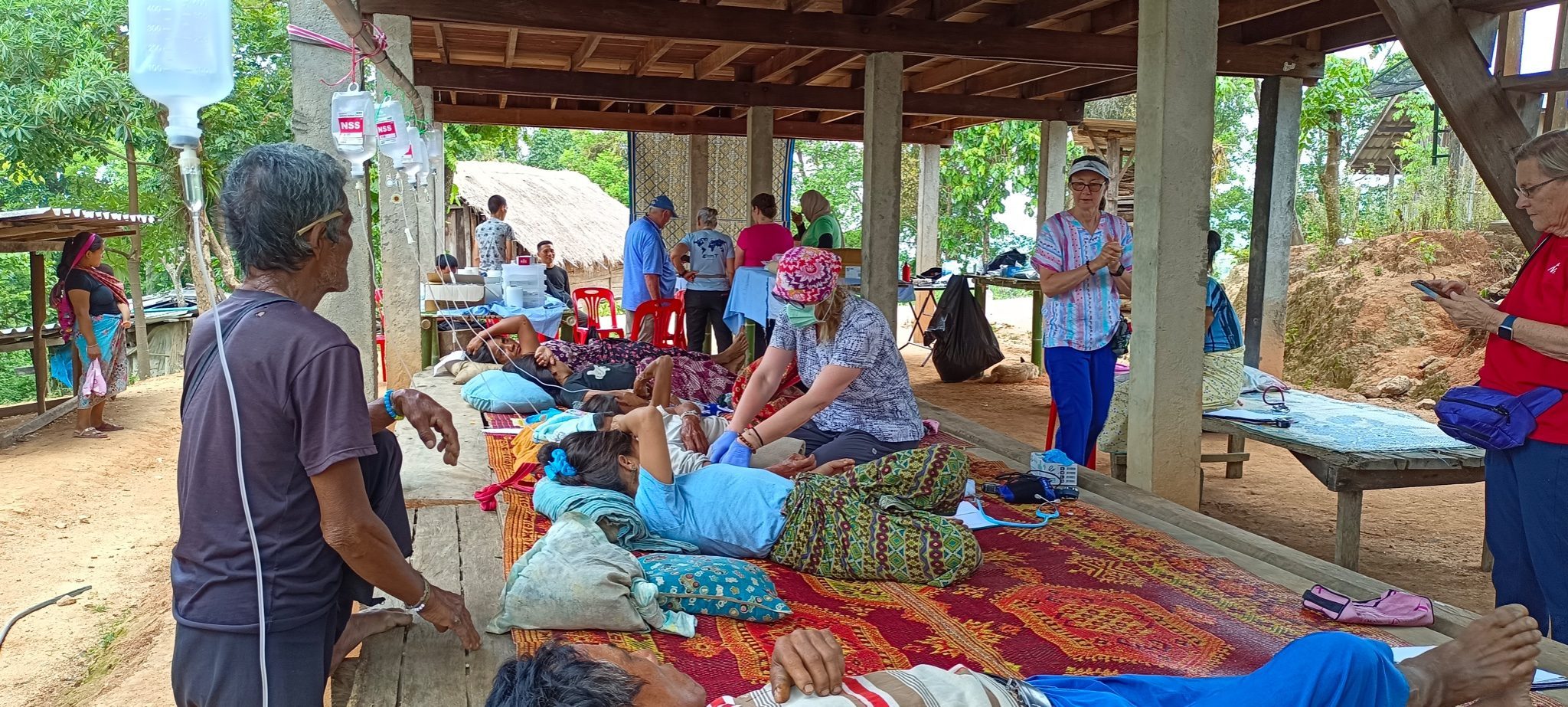Most hill tribes live in the mountainous border areas in 16 Northern provinces of Thailand. It is estimated that in the in the Norther of Thailand there are about 750,000 people who belong to ethnic minorities, but the actual census is difficult to know since many are not registered. Their villages are in remote areas far from the city and health service facilities, with poor road access and public transport. Many of them do not qualify for, or have failed to obtain, a Thai ID card regarding Thai’s law and regulation which generally is required for free or subsidized government medical and educational services.
Most hill tribe people work in low pay manual jobs with limited opportunity to earn money, receive health information, or have access to affordable healthcare.
Also traditional belief and medical system is still strong in their villages and which many may choose to manage their health and illnesses.
In time of having health problems the hill tribe people have their own steps of taking care of themselves and their families. The first step, the hill tribe people try to seek and use their local traditional remedies and witchcraft. This is very common because the modern health care setting that could be used in the area is usually very far from the village. A decision to get access to modern health care is not limited only by their traditional belief but also by the distance and difficulty in traveling, especially in the raining season which calls for reasonably good road and vehicles. A 2-3 hours journey to the nearest health center is not uncommon, which in many emergency cases is too long. Such obstacles do not have adverse impact only on therapeutic care but also make delivery of prevention programs such as mother and child health, immunization program, health education, etc. difficult to reach their targets.
So, here we are bringing free health care to the communities as a basic human rights. As we move from village to village, we see and treat sick villagers. We normally stay 2-3 days in each village to make sure every sick villager is seen and treated.
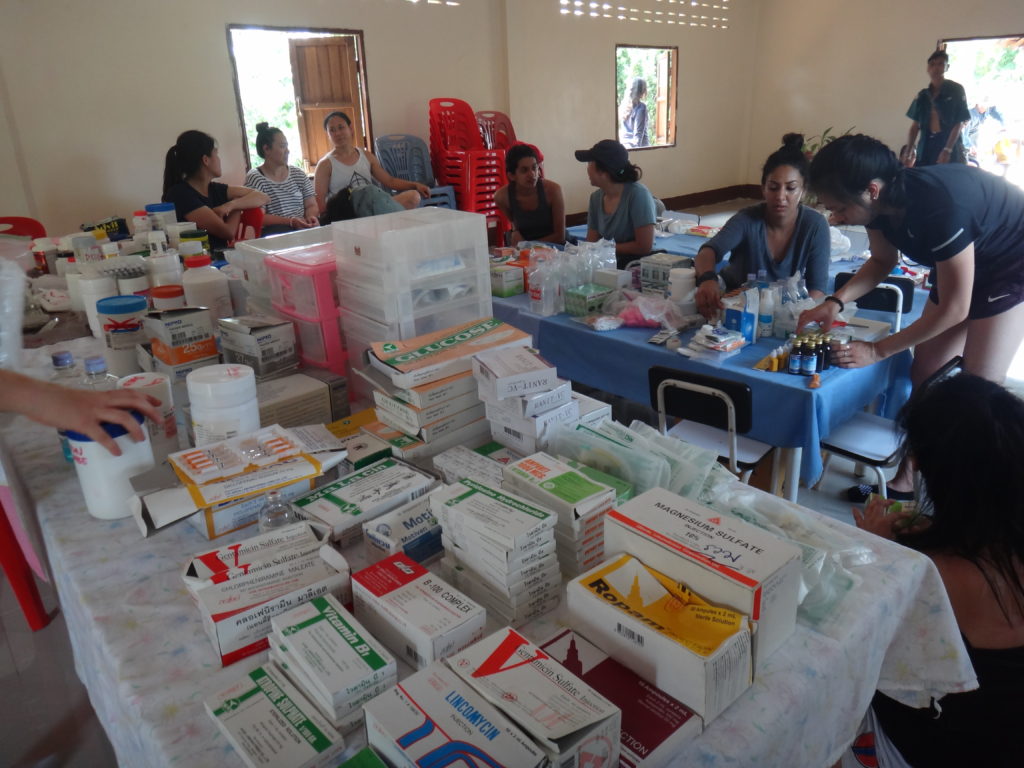
We carry large amount of drugs, medical equipments, test kits and medical supplies, which include IV drips, injections and surgeries. On top of that, we carry large amount of babies and children supplies.
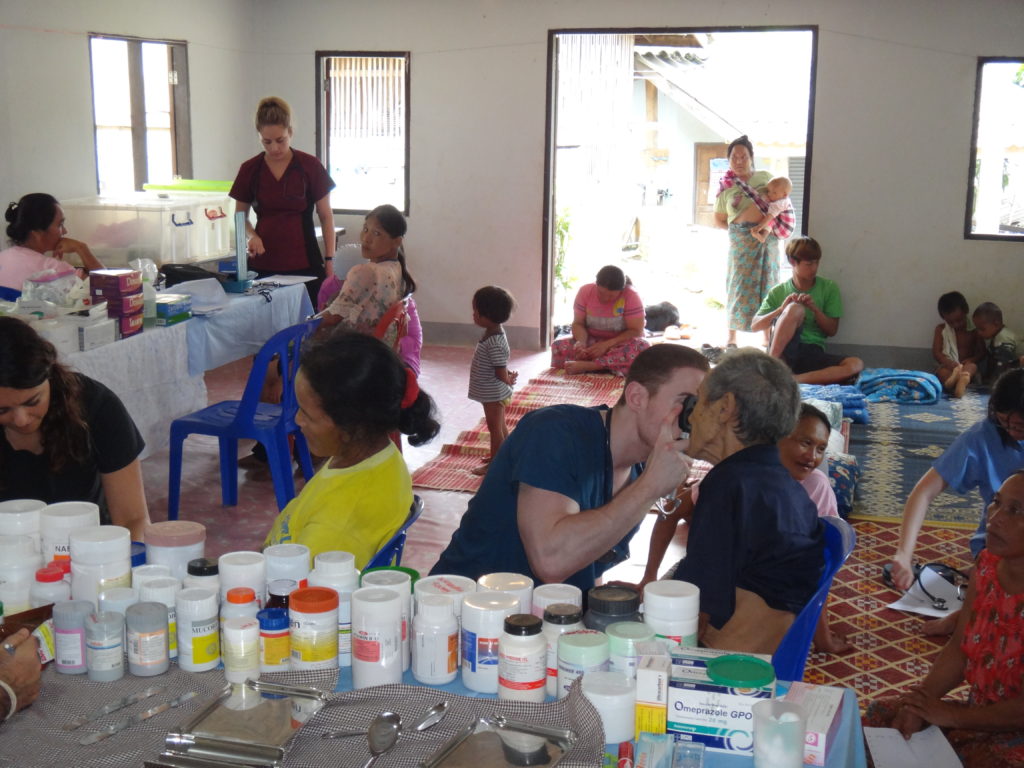
We have mini hospital settings that include out patients and in patient treatments as well as paediatric, obstetric and dental sections. We also work with local Thai District Health Promoting hospitals, operating minor to major surgery, ranging from trauma to Cleft lip and cleft palate.
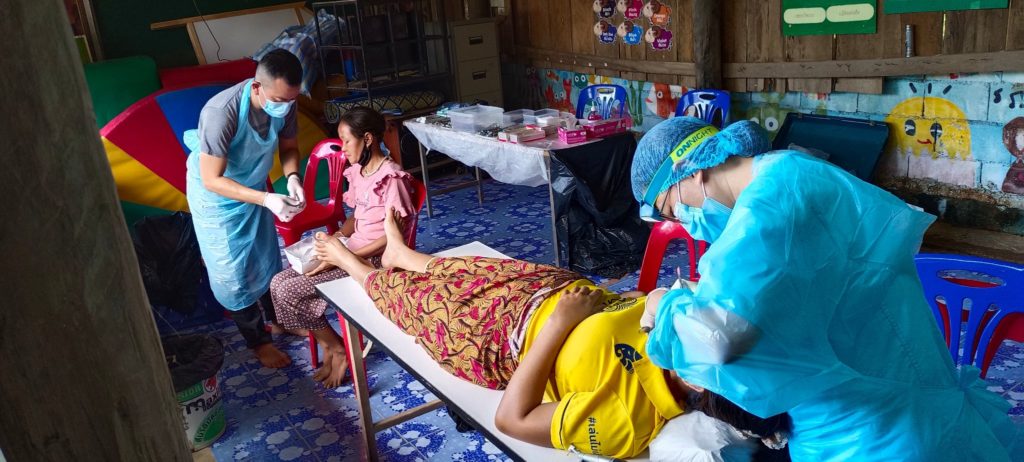
We usually set up a village clinic at village churches and school buildings; a place where we can accommodate large group of people. Every sick villager is checked, examined and lab tested thoroughly before treatment is given. Normally a patient is given 3-7 different medications for the course of 7-30 days with 2-3 days follow up.
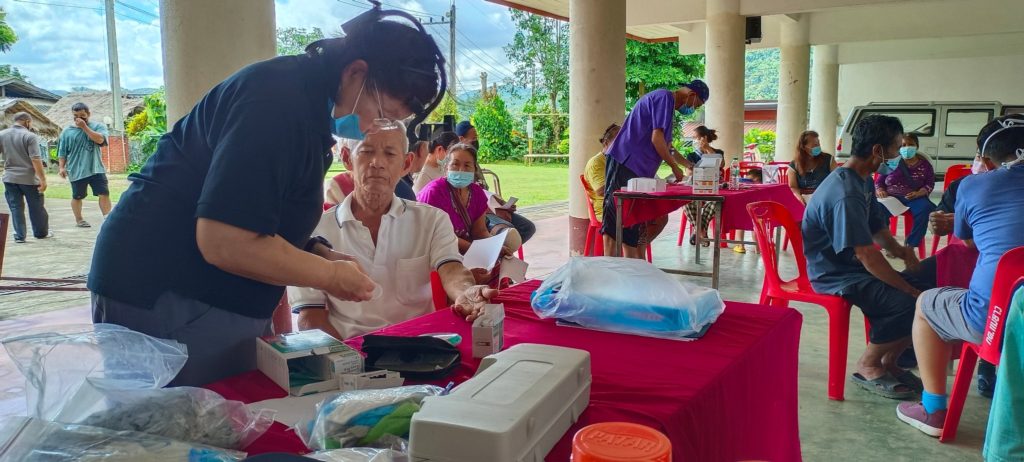
We normally see 50-150 sick villagers a day depending on the size of the village where we set up a village clinic since villages differ in size, consisting of 20- 150 families in a village.
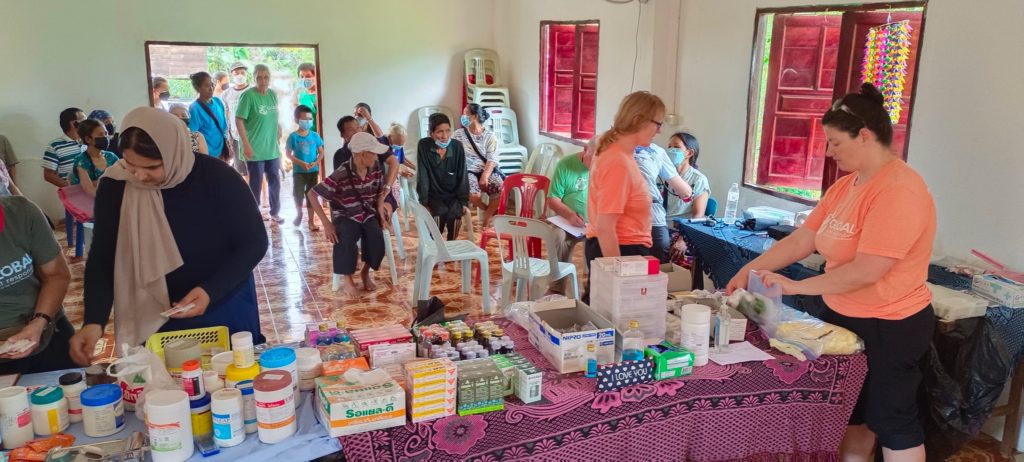
Villagers often come with different illnesses, ranging from simple colds to serious systemic disorders depending on the seasons and rations. Malnutrition is one of the most widely seen cases among babies, children, nursing mothers and adult population in the communities. Chest and lung infections are another widely seen cases as most families cook and smoke their foods inside their houses. Among children and babies, chest infections are also very commonly seen.
Other sicknesses such as parasitic infections, gastritis, GERD are very common on top of a few other gastrointestinal diseases. Among others, high blood pressure and diabetes.
We also come across quite a lot of eye cases; AMD, cataract, Pinguecula and pterygium are among others.
At the same time we also come across quite a lot of accidents and trauma cases in the villages.
Attending labors and delivering babies are often a babus for most medical volunteers.
